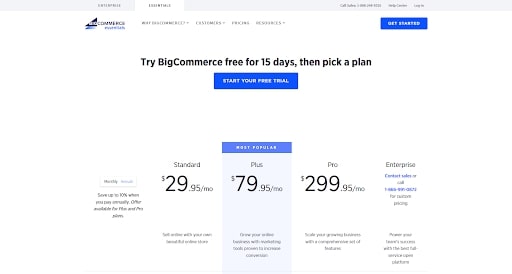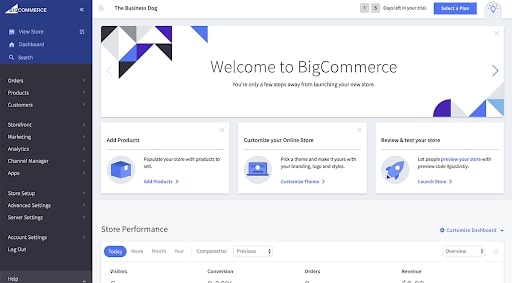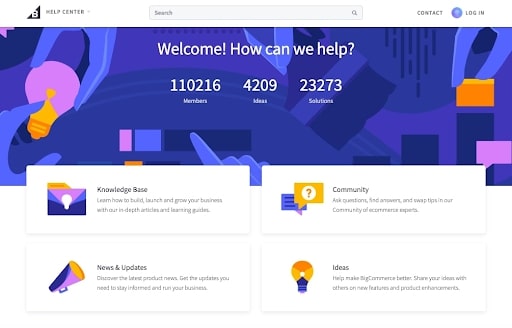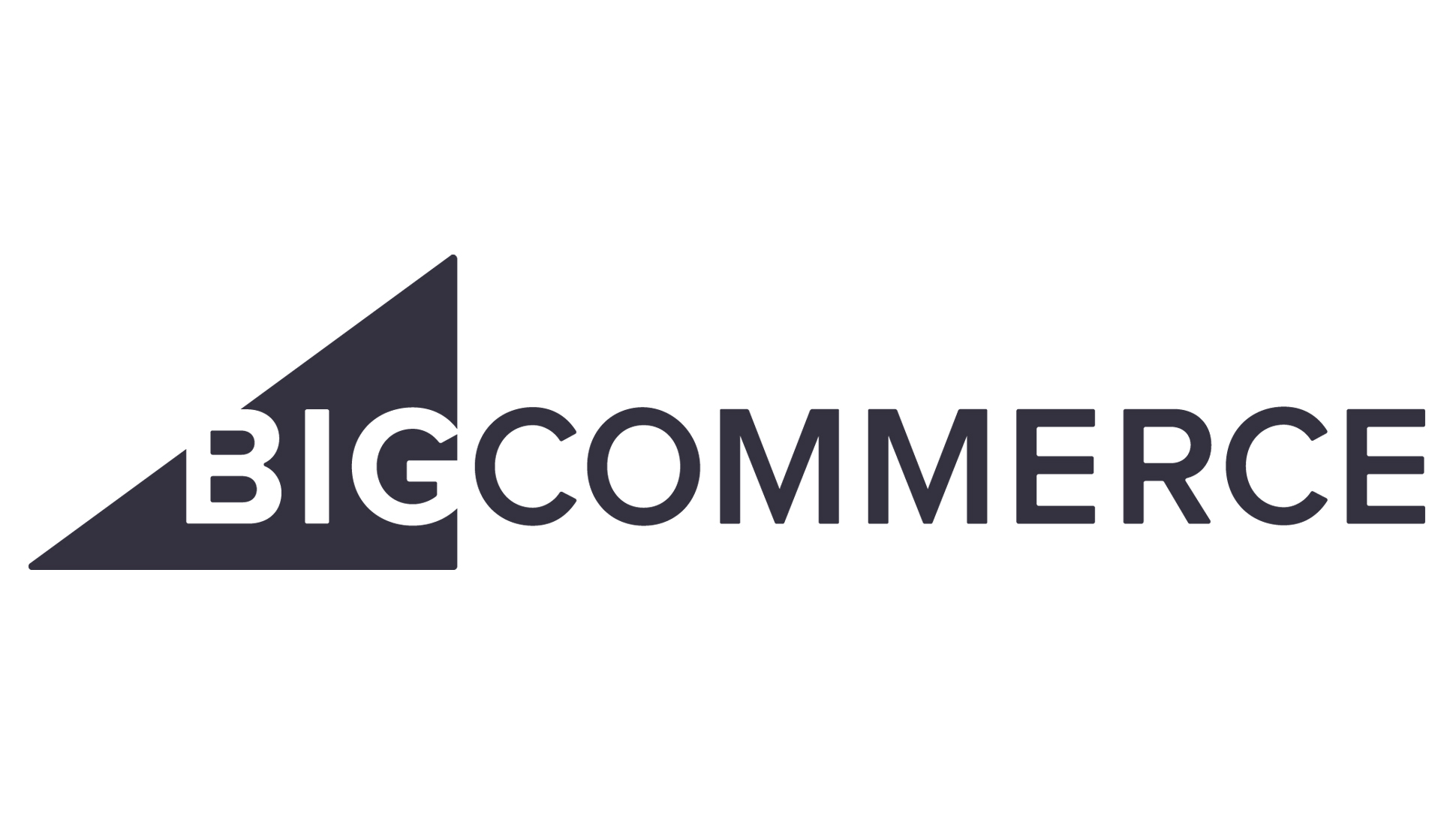Tom's Guide Verdict
BigCommerce is an advanced tool for building powerful ecommerce websites, but its plans are best suited for larger businesses.
Pros
- +
Lots of advanced features
- +
Unlimited resources per plan
Cons
- -
Rigid pricing structure
- -
Expensive solution for small businesses
Why you can trust Tom's Guide
BigCommerce is a scalable, feature-rich ecommerce platform that helps medium- to large-scale businesses build great online stores. Driven by powerful search engine optimization and multi-channel marketing features, this is a platform that will help you take your ambitious project to the next level, and ranks among the best website builders, specifically competing to be the best ecommerce website builder.
No matter how big you get, you won’t outgrow BigCommerce. However, using an advanced platform like this also comes with a few downsides. Small businesses may end up paying a lot more for features that are of little use, while fledgling developers may struggle to keep up with the robust interface.
In our BigCommerce review, we take a look at the platform’s strongest features, as well as its biggest quirks, to determine if it’s the best website builder for your ecommerce business.
BigCommerce: Plans and pricing

BigCommerce comes with four separate plans that scale with the size of your ecommerce business: Standard, Plus, Pro, and Enterprise. Unlike with other providers, you have relatively less control over the plan you choose, as you are automatically upgraded to a higher tier plan once your yearly revenue reaches a certain mark. However, you can also upgrade your plan to a higher tier than your current one should you require more features.
BigCommerce imposes no restrictions on the bandwidth allotted or products sold per plan. It also doesn’t charge any transaction fees. Higher tier plans offer more features, however, such as abandoned cart recovery and product search filtering. There’s a 15-day free trial as well as 24/7 support for all paid users.
BigCommerce Standard costs $29.95 a month. You get unlimited product numbers and unlimited staff accounts, as well as multi-channel integration, real-time shipping quotes, discount coupons, and product reviews. This is followed by BigCommerce Plus, which offers all of this and abandoned cart recovery for $79.95 a month.
BigCommerce Pro offers you a custom SSL certificate, Google customer reviews, and product search filtering along with all the features of Standard and Plus for $299.95 a month. Enterprise plans come with priority support and price lists, but require you to contact the service provider directly for a quote.
Get instant access to breaking news, the hottest reviews, great deals and helpful tips.
BigCommerce: Features

BigCommerce is an advanced, feature-heavy platform that provides you with a lot of options to maximize your business revenue. Here, we take a look at some of its strongest offerings.
It employs a clever pricing structure that offers unlimited resources—website bandwidth, product numbers, and staff accounts—regardless of which plan you choose. Plans differ based on your company’s yearly revenue and the number of special features you require, instead.
BigCommerce is an excellent platform for businesses that like to use a variety of social media platforms to maximize revenue. It supports eBay, Amazon, Facebook, Google Shopping, Instagram, and more.
Both your product inventory and individual listings sync up automatically with these platforms, letting you focus your marketing efforts on chasing down leads instead of performing micro-management. BigCommerce also offers you an expedited application process for Walmart Marketplace, should you opt to sell using that platform.
It is said that more than 65% of consumers leave an online store halfway through their purchase. This means that a quick email letting them know that their cart is waiting, along with any applicable offers for those specific products, has a great chance of maximizing otherwise lost revenue. Abandoned cart recovery is included with all plans above the basic tier with BigCommerce.
BigCommerce: Interface and in use

BigCommerce features an elegant and intuitive web interface that lets you manage your online store from one place. The interface is easy to navigate, and features a guided tour for first-time users should you feel lost.
It consists of a centralized dashboard that lets you view things like recent orders and site traffic, access your store frontend, and check out the most recent notifications. A sidebar on the left leads you to several other sections, such as Orders, Products, Customers, Content, and Marketing. It’s all very neat and well organized.
BigCommerce: Support

BigCommerce’s help center is full of articles and videos that can help you make the best out of the platform’s features. BigCommerce also offers 24/7 support via live chat, phone, and email. Enterprise users gain access to priority support, which lets them instantly connect to senior members of the customer support team should they need assistance.
Alternatives to BigCommerce

BigCommerce is a direct competitor to other ecommerce website builders like Shopify and Volusion. Here, we take a look at how well it fares compared to these powerful competitors.
Shopify is definitely the more popular option when it comes to easily launching your own online store. However, BigCommerce is the preferred choice for advanced users who require more dedicated features and support. BigCommerce also doesn’t levy any annoying transaction fees, unlike Shopify.
Volusion is one of the oldest players in the ecommerce market, having spent a long time perfecting its offering. Unlike BigCommerce, Volusion features a much more flexible pricing model that lets you control which plan you are on, although it does restrict the amount of bandwidth and products included per plan.
In the end, BigCommerce is the preferred choice for entrepreneurs who want advanced features and unlimited resources for their online business. Shopify and Volusion are both equally good services, however, each with its own weaknesses and strengths.
BigCommerce: Final verdict
BigCommerce is a powerful ecommerce platform that helps ambitious businesses scale quickly. It offers multi-channel support for maximum revenue, as well as a host of search engine optimization tools. You also get abandoned cart recovery and product search filters so that you can further optimize the shopping experience.
However, the lack of a flexible pricing structure, despite the presence of unlimited resources, makes some people shy away from an otherwise compelling offering. BigCommerce is also not a great fit for small businesses, many of which may end up paying more for features they don’t really need.
Further reading on website builders
Take a look at our step-by-step guide on how to build an ecommerce website, and our guides outlining the best ecommerce website builders and the best small business website builders. If you're looking for increased complexity and flexibility, start your advanced website journey with the best web hosting services.

Ritoban Mukherjee is a freelance journalist from West Bengal, India whose work on cloud storage, web hosting, and a range of other topics has been published on Tom's Guide, TechRadar, Creative Bloq, IT Pro, Gizmodo, Medium, and Mental Floss.






